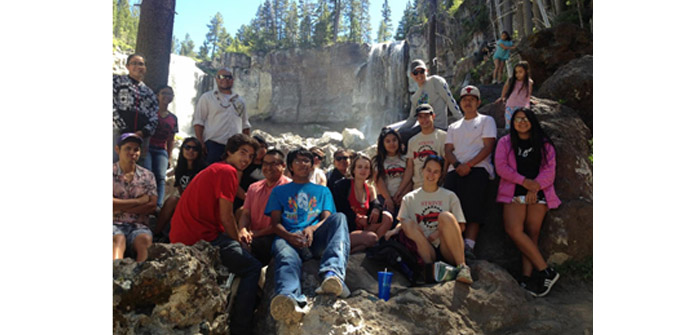(Central Oregon Community College’s 2018 summer symposium for Native American high school students | Photo courtesy of COCC)
A grant from the Central Oregon Health Council (COHC) to Central Oregon Community College (COCC), totaling $88,501, will facilitate a new high school summer symposium for regional Afrocentric students and partially fund an existing Native American college prep coordinator’s annual salary.
“We partner with our communities to guide and align vision, strategy and activities across industries for a healthier Central Oregon,” said Donna Mills, executive director of COHC. “This grant will enable our communities to focus in areas that have been systemically oppressed. COCC is building off a strong record of improving high school graduation rates with large percentages of low-income students, and we’re so proud to be a partner.”
The Native American college prep program is currently offered in five Central Oregon high schools and serves approximately 40 to 60 students annually. The program has led to a 98 percent high school graduation rate for participating students, a rate that surpasses the state’s graduation rate for Native American students. Additionally, approximately 76 percent of the students in the program go on to college.
Christy Walker, COCC’s director of diversity and inclusion, said the support is essential and will enable the college to keep its Native American college prep coordinator funded through August 2022, while also initiating the first-ever Afrocentric summer symposium next year.
“Knowing there are organizations in our communities that support this work is tremendous,” said Walker. “It shows that we are no longer living in silos when it comes to student support. Acknowledging the value of culturally specific programming shows folks in our communities that they are seen, they belong and they are welcome.”
COCC will model the new Afrocentric symposium on its existing weeklong summer programs for Central Oregon Latinx and Native American high school students, which are designed to offer an inside look at the college experience while sharing support services, such as financial aid sessions. Students live on campus for four days and learn about career options while engaging in cultural exploration.





